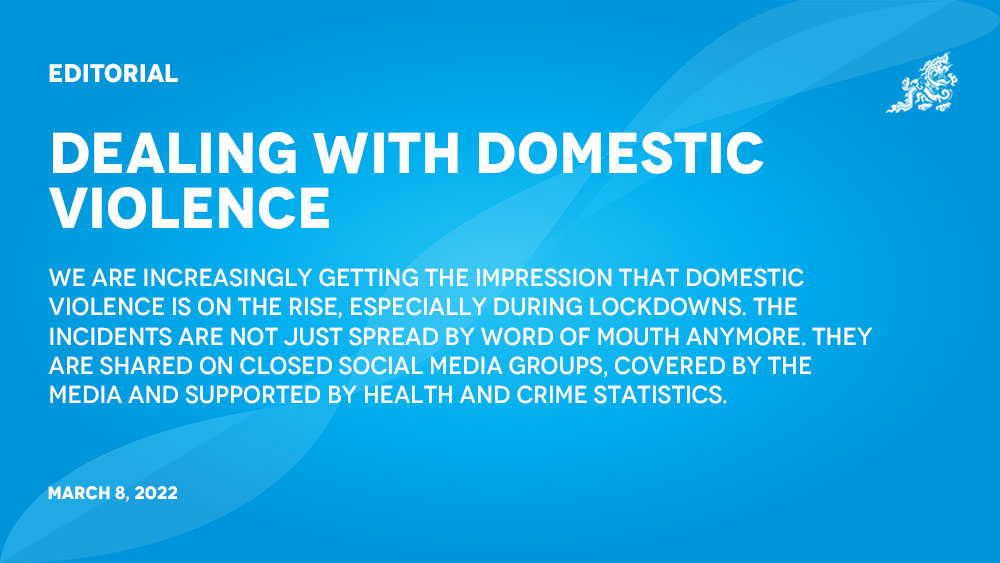We are increasingly getting the impression that domestic violence is on the rise, especially during lockdowns. The incidents are not just spread by word of mouth anymore. They are shared on closed social media groups, covered by the media and supported by health and crime statistics.
We also know that it is not a new trend. The problem is becoming better known. It is becoming a widely-discussed issue and the police, health officials, NGOs, government authorities, as well as the public are becoming more aware of the problem by the day.
Bhutan’s claim of gender equality in our traditional society is, however, still valid. All societies, no matter what the level of their development, face the problem of domestic violence. Ours is not any worse. In fact, some societies experience forms of gender domination that are subtle and can be even more harmful than physical violence.
With the growing awareness, we have initiated several programmes but we are still in our infancy when it comes to dealing with such a complex problem. At this stage of development, our society and even officialdom lack the expertise and resources to deal with it.
As a society that is seeing a major change in every aspect of socio-economic and political life, we are yet to conduct in-depth research and develop specialised responses to the mounting problem. But the problem is becoming more visible and we will have to build or strengthen, our capability and the appropriate institutions.
Meanwhile, there is one step that we can take immediately. One of the main causes of domestic violence is alcohol so alcohol consumption needs to be controlled. Long recognised as the cause of health as well as social problems we have not done enough to reduce alcohol consumption. That is despite knowing that most of the serious patients in our hospitals suffer from alcohol-related diseases.
Creating awareness is the right approach but we should also accept that decades of ineffective campaigning has not helped. It is time that we found a more sobering strategy. For instance, we could reduce availability, levy heavier taxes, impose severe penalties for crimes like drink-driving and dissuade farmers from converting their food grain into alcohol.
However, that would only be treating one part of the problem.
We have learnt from the lockdowns that those survivors of domestic violence reach out to seek help if support systems are available. The aggressive awareness has helped connect those who need the support with those who cater the services. We need to build on this momentum and help more. Not just those who are abused but those who are habitual abusers to avail of professional help to reform.
This can be a pledge we make on this International Women’s Day to help every survivor get help for as long as domestic violence remains a raging war in our homes.


